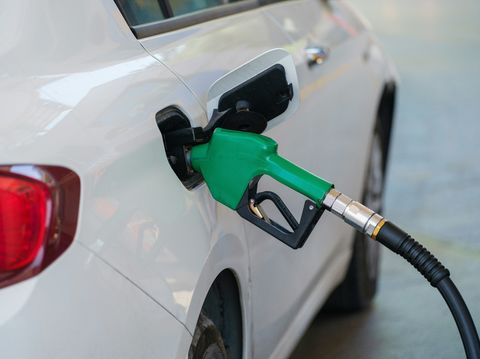What Are Synthetic Fuels?

The UK government has planned that all new cars and vans will be emission-free by 2035 and many manufacturers are making a move to EVs and carbon-neutral options. Could synthetic fuels be an alternative to electric vehicles?
How is Synthetic Fuel Produced?
Synthetic fuel is produced using renewable electricity and carbon dioxide captured from the atmosphere or industrial processes. The production process involves the following steps:
1. Electrolysis: The first step in producing synthetic fuel is electrolysis, which involves splitting water into hydrogen and oxygen using an electric current. This process requires renewable electricity, such as solar or wind power, to power the electrolysis.
2. Carbon capture: The next step is to capture carbon dioxide from the atmosphere or industrial processes. The carbon dioxide is typically captured using various technologies, such as absorption or adsorption, and compressed for storage.
3. Synthesis: The hydrogen produced through electrolysis and the captured carbon dioxide are then combined using a process known as "Fischer-Tropsch synthesis." This process involves reacting the hydrogen and carbon dioxide in the presence of a catalyst to create a liquid hydrocarbon fuel, such as diesel or petrol.
4. Refining: The final step in producing synthetic e-fuel involves refining the hydrocarbon fuel to remove any impurities and adjust its properties to meet the desired specifications.
Environmental Impact of Synthetic Fuels
Creating synthetic fuels can take large amounts of carbon dioxide from the atmosphere. This can offset the emissions that are produced by cars with combustion engines.
According to Saxton 4x4, “When compared to conventional mineral oils, synthetics help cut engine emissions. Synthetic oil is not only refined but it is also distilled and purified.”
Advantages of Synthetic Fuels
Synthetic fuels can increase the longevity of existing products. Synthetic fuels can be used in current combustion engines, reducing the need for people to buy new cars with lower carbon emissions.
Synthetic fuels are a lot more sustainable than petrol and diesel. This is because synthetic fuel can be produced using renewable materials and can be powered by wind turbines. This alternative fuel source can also be the stepping stone for innovation!
The infrastructure used for synthetic fuels can also be an important factor for renewable hydrogen.
Disadvantages of Synthetic Fuels
On average, 45-50 million litres of petrol and diesel are used every year in the UK. The supply and demand of synthetic fuels currently do not match petrol and diesel. However, the supply of synthetic fuels will continue to increase over the next few years with supplies coming from places such as the Haru Oni plant in Chile.
Currently, the infrastructure for developing synthetic fuels just isn’t ready. Companies such as Porsche have already invested in facilities for synthetic fuels but because of the complex and costly process of creating synthetic fuels, there isn’t the infrastructure to bring the cost down, to make it more accessible, quite yet.
Could Synthetic Fuels Replace Electric Cars?
It is unlikely that synthetic fuels will completely replace electric cars in the near future. While synthetic fuels may offer some advantages over conventional petrol and diesel fuels, they still produce emissions and are not as environmentally friendly as electric vehicles.
Electric vehicles have become increasingly popular in recent years due to their efficiency, lower emissions, and decreasing costs. Additionally, as the renewable energy sector continues to grow and electricity grids become cleaner, electric vehicles are becoming even more attractive as a sustainable transportation option.
The Future of Synthetic Fuels
With the partnership of Porsche and Siemens, the production of synthetic fuels will be increased between 2022 and 2026. By 2024, the aim is to increase the production of synthetic fuels by up to 55 million litres. By 2026, the production should be increased to 550 million litres. With this partnership with Siemens and many other companies, they aim that the plant in Southern Chile will use clean energy for the production of synthetic fuels. This energy will be created by wind turbines.
FIA, the organisation that oversees Formula One, has said that F1 will run on sustainable synthetic fuel from 2026 onward. The RAF has also pledged that sustainable fuels will power their jet aircraft.
And there you have it, everything you need to know about synthetic fuels! For more tips and advice, check out our blog or give us a follow on Instagram and Facebook.
Header image credit: https://www.pexels.com/photo/gas-pump-nozzle-filling-the-white-car-12377482/




